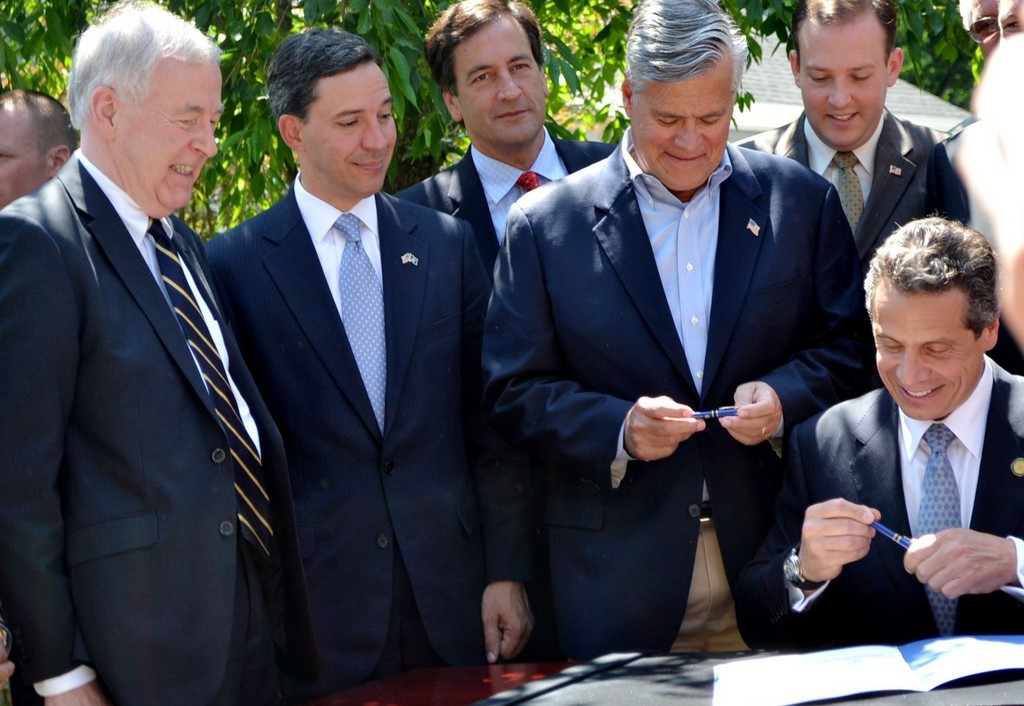New York passes historic property tax cap
This one was never in doubt. Legislation that will put a cap on property tax levies passed by a 57-to-5 margin in the State Senate before it made it through the Assembly and was signed into law by Gov. Andrew Cuomo last Friday.
“If we’re going to turn this state around and stop hearing talk that it’s going in the wrong direction, it starts now,” said Sen. Charles Fuschillo Jr., a Republican from Merrick, addressing his colleagues on the Senate floor in Albany.
The bill essentially limits the amount that a school or village board can increase a property tax levy in a given year. The cap will be set at 2 percent or the Consumer Price Index (the rate of inflation), whichever is smaller.
“New Yorkers pay the highest property taxes in the country, and they are sick and tired of having their tax bills increase year after year, sometimes by double digits,” said Sen. Kemp Hannon, a Republican from Garden City. “This issue is crucial to countless families and businesses on Long Island and across New York state.”
According to information provided by the governor’s office, New York has the highest local taxes in the country as a percentage of personal income. The median property tax paid by a New Yorker is $3,755, which is almost twice the national average. Property tax levies grew by nearly 75 percent from 1998 to 2008. In the face of the ballooning cost of living, the state is losing jobs and population at a rate greater than the national average.
“The property taxes in Nassau are insane,” said East Meadow resident Patti DiTomasso. “I think the price to live has spiraled upward alarmingly. We bought our house in 1993. My taxes have more than doubled in that time, where our salaries have not.”
While there are a number of exceptions to and exemptions from the cap, including the option of a supermajority vote to exceed it, the law is intended to rein in spending by local school and village boards and limit or slow the growth of ever-increasing spending. Officials have said they hope the bill’s passage will be viewed at the very least as a symbolic gesture that Albany is trying to address the concerns of New Yorkers.

 75.0°,
Partly Cloudy and Breezy
75.0°,
Partly Cloudy and Breezy 




